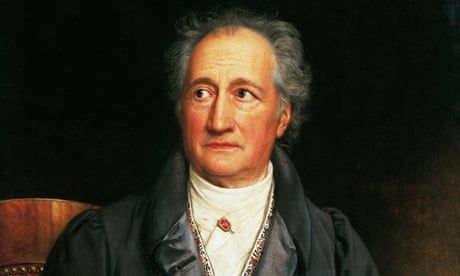
The biographer and historian worships at the altar of the German writer and his magnum opus in an ambitious book that ties itself in knots
In his 20s, AN Wilson was briefly a candidate for the priesthood. The Anglican God let him down back then, and he has spent the subsequent five decades auditioning substitutes. He now seems to have decided that a deity worthy of worship must be resident in our world rather than afloat above it, and he has therefore erected an altar to Goethe, the sage who “held the German soul in his hands”, established the country’s cultural pre-eminence, and incidentally possessed “the most interesting brain which ever inhabited a human skull”.
Wilson identifies the omniscient Goethe with the hero of Faust, the unstageable poetic drama that was his “whole-life masterpiece”, successively extended and reconceived between 1772 and 1831. In this “philosophical oratorio”, Faust begins as a rebel against Christianity but ends by superseding all established religion. At first he makes a deal with the devil, who prompts him to seduce and cynically abandon a village virgin; at last, evading damnation, he is redeemed by his faith in a benign force that Goethe calls “the Eternal Feminine”, which for Wilson honours the maternal nature that is the source of all life on our abused planet. Although Faust dizzily commutes between heaven and hell, Wilson believes that his exploits tell “the story of us”, exploring the heady but risky freedom we possess in a world no longer policed by God.
Continue reading...